How do you paint rooms different colors when the rooms run together? Tricks to try from the experts
Learn to connect rooms with color with these expert tips for using paint in adjacent spaces
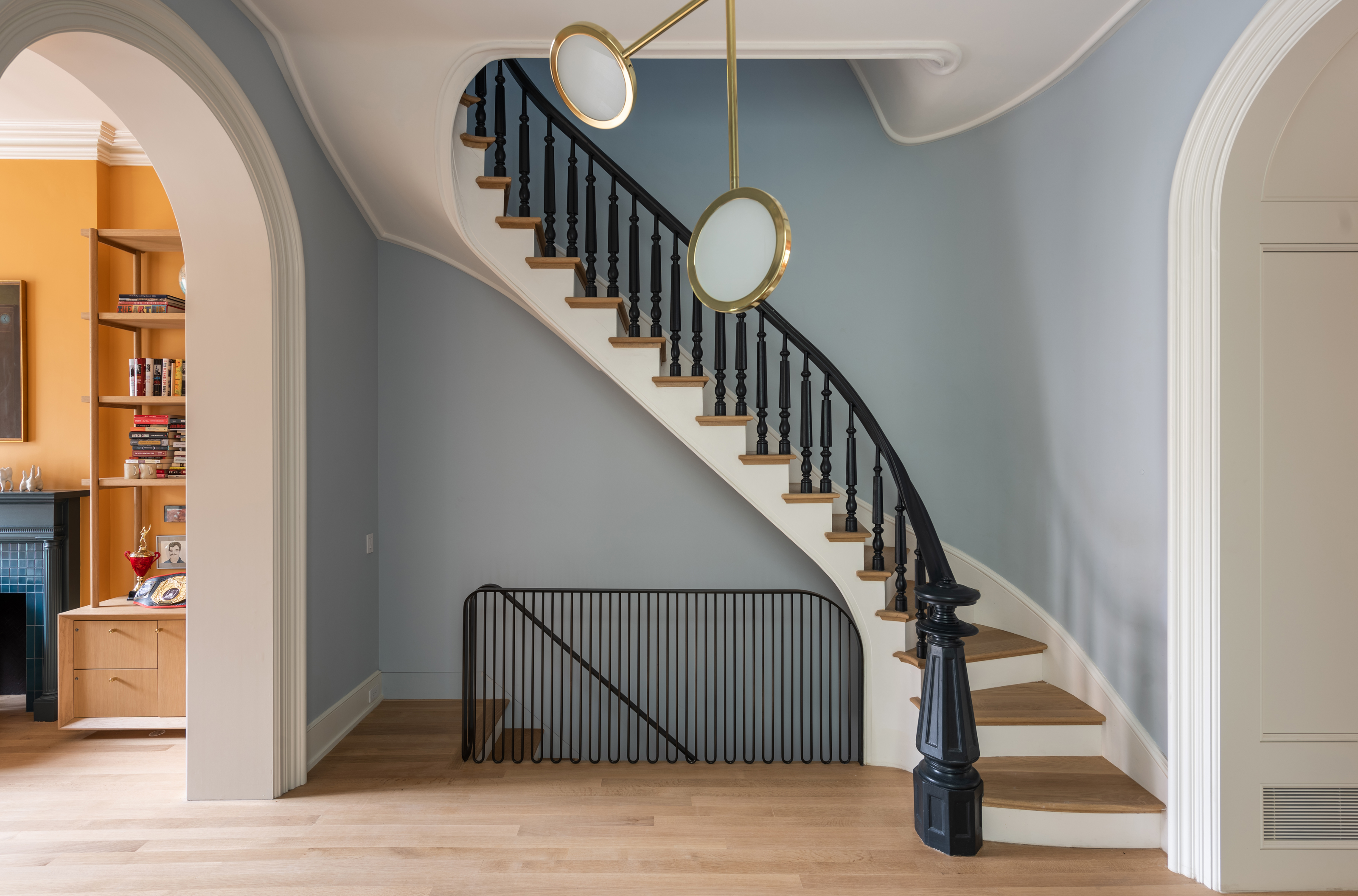

The rise of open plan living has to be one of the most significant shifts in our homes in recent times. However, for all its perks, open plan design brings with it some challenges, especially around using paint colors creatively on walls within your space. After all, how do you successfully paint rooms different colors when those rooms run together?
It's understandable why simple, one-color paint palettes go hand-in-hand with open plan spaces. Often, there's not an obvious place to enact a color change, and when you do paint open plan rooms in different colors, the effect can be unpredictable. Keeping it simple is playing it safe.
Yet if you're a color lover, you shouldn't have to choose between the joys of open plan living and embracing the paint ideas you want to. Whether you're dealing with rooms separated with open doorways, different zones in an open plan home, or just adjacent spaces, interior designers have tricks for how to deal with introducing color when rooms run together. Here's what you need to know.
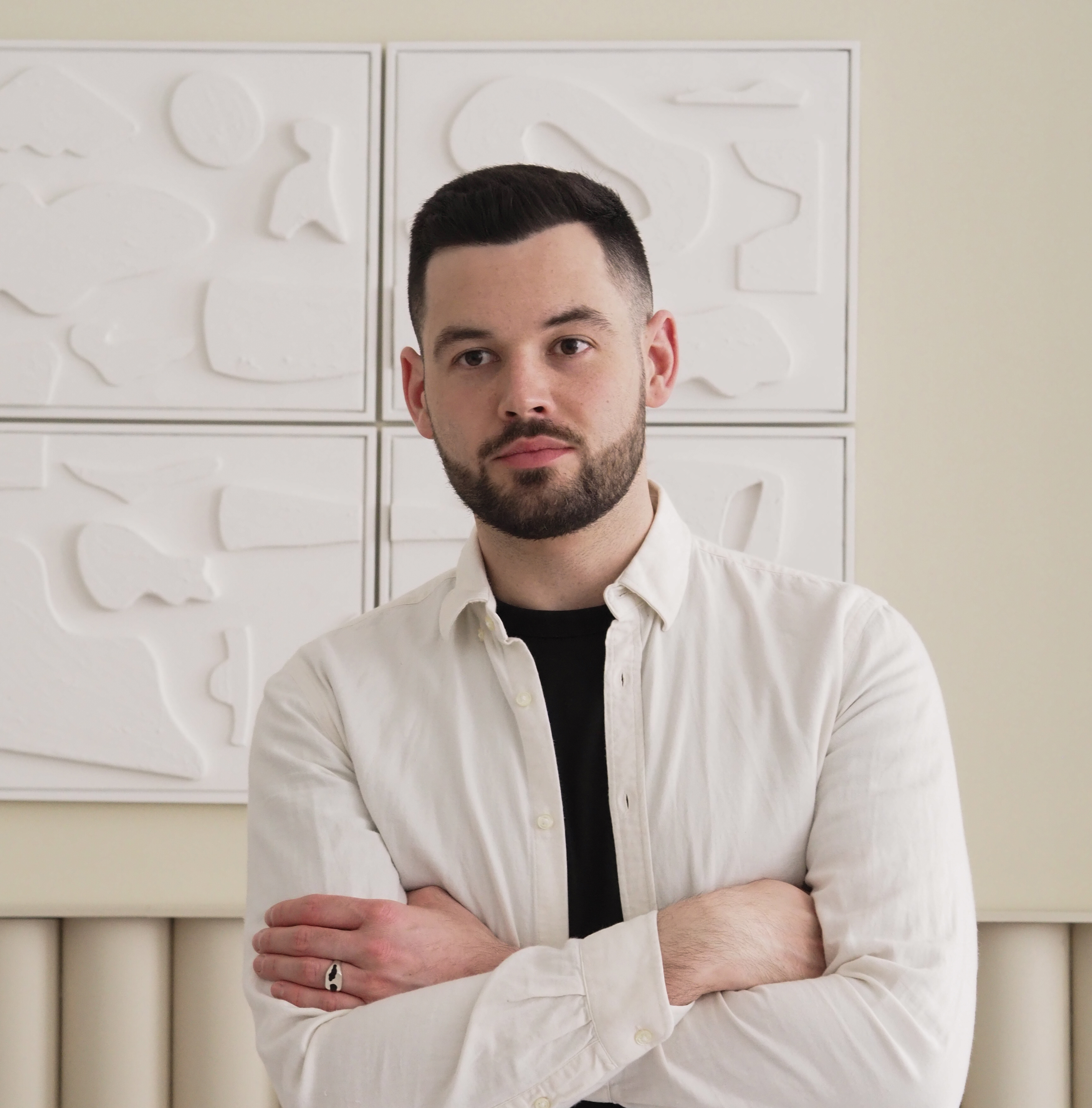
Luke is a freelance writer and stylist who specializes in modern, luxury design. Here, he offers some of his top advice for painting adjacent rooms, as well as getting tricks from his extensive contact book of design experts.
How do I choose paint colors that work together?
Before you get into the fine detail of running color across adjacent rooms or spaces, you need to think about how your choice of color will function. When rooms run together, wall colors don't just exist in isolation, so it needs to be considered in the vistas created from every angle you see as you use the rooms.
'Choose colors that will compliment each other as your eye visually moves from one space to the next,' suggests interior designer Ginger Curtis, founder of Urbanology Designs. However, this doesn't mean that they need to "match" per se. 'I often prefer colors that are contrasting yet complimentary to the colors around it,' Ginger adds. 'For example moving from a dark moody dining room that's open to a bright and airy living space.'
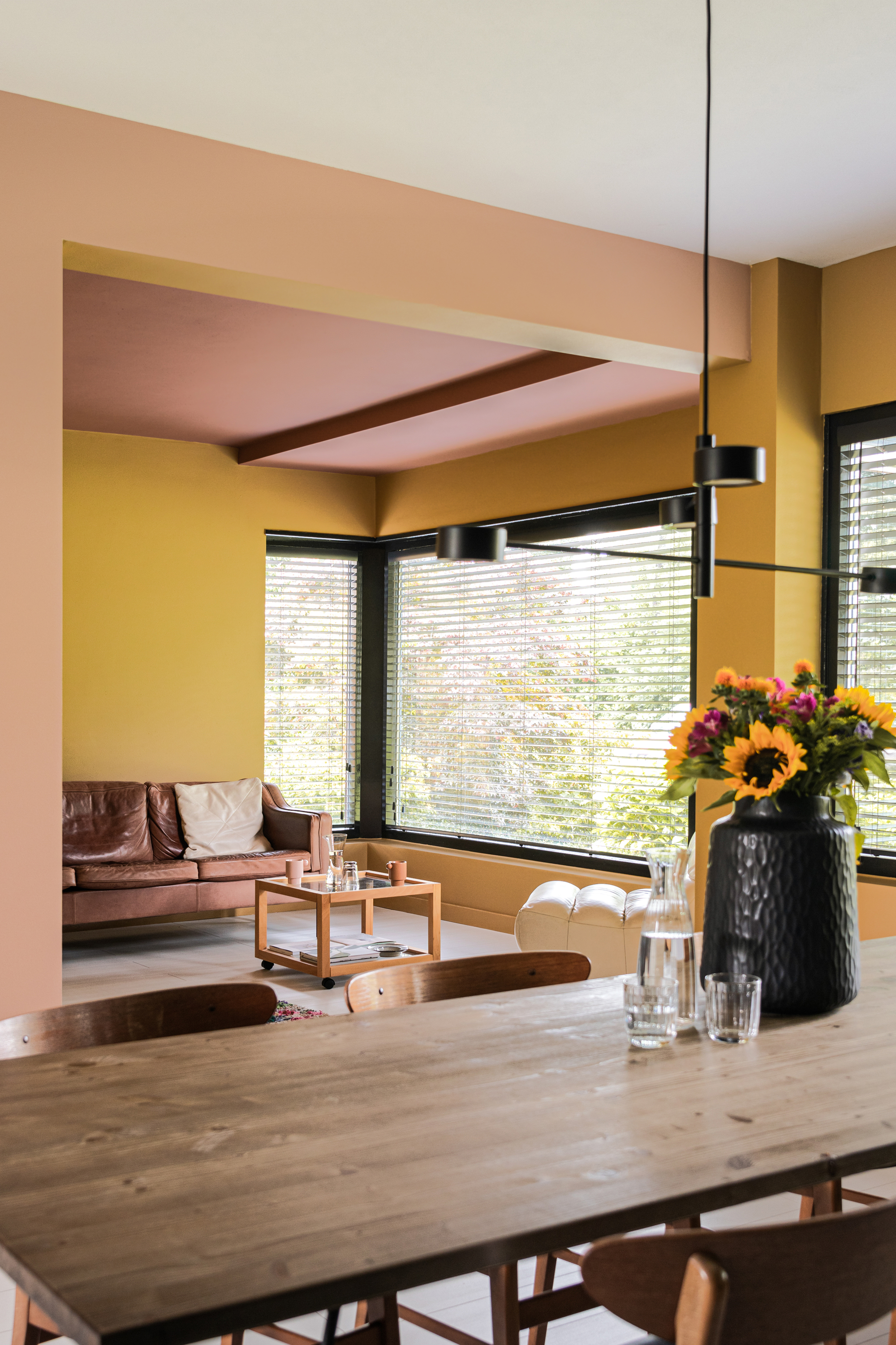
The cornerstones of how to create a color palette are the same across an open plan space as they are for any room, and will depend on your interior style and color preferences. When using different colors across rooms that run together a tonal scheme might be the best way forward for your space, or something with more contrast.
How do I make the rooms cohesive?
Creating a color palette in an open plan space means that your design should feel connected, with each space referring to the other. 'A good rule of thumb is, if you are going to paint rooms different colors in an open area, bring in the color again either in an accessory, artwork, or fabric of the other room, says San Francisco-based interior designer Holly A Kopman. 'A small accessory can do wonders with tying together rooms.'
Be The First To Know
The Livingetc newsletters are your inside source for what’s shaping interiors now - and what’s next. Discover trend forecasts, smart style ideas, and curated shopping inspiration that brings design to life. Subscribe today and stay ahead of the curve.
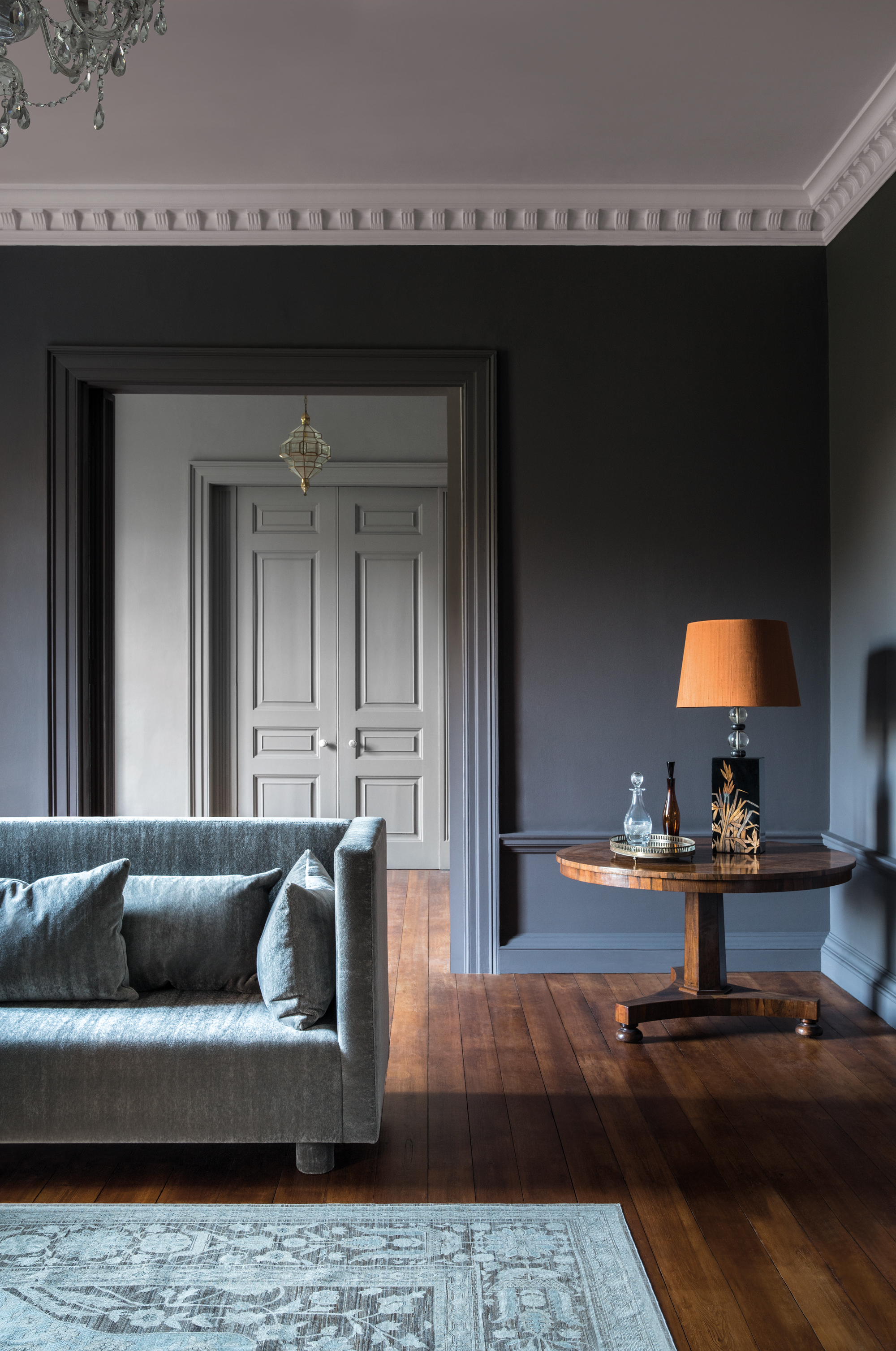
There are a couple of ways you could approach this to get the balance right, and ensure a larger space doesn't feel too themed with color. Creating a through-line between the spaces might be as simple as one small, but impactful accessory in one area that's the same color as the dominant color in the other. Alternatively, you could employ the 60-30-10 rule across the wider space, allowing different areas to be painted different colors, while still feeling like they're part of the same scheme.
Where should the paint color change occur?
'The other key factor to look for natural breaking points to stop and transition from one color to another,' says Urbanology Designs' Ginger Curtis. In most spaces, this will defer to architectural details, rather than choosing arbitrary points and color blocking with paint. Whether it's alcoves and niches, corners, structural beams or doorways, the best open plan spaces to use different colors in will have these breaking points to add structure to your space.
'Always factor in where the corners are,' says interior designer Annaliesse Kelly, founder of AK Design. 'I recommend doing a color change at an inside corner rather than an exposed corner.'
This will also make for a cleaner finish. 'Choose a place where you have the cleanest transition, ideally not an exposed edge, where it can be difficult to get the sharpest finish without paint bleeding onto the other side of the corner,' Annaliesse explains. 'This is especially true when you are going from white to a starkly contrasting color like black. You want the paint lines to be completely straight, trim to trim.'
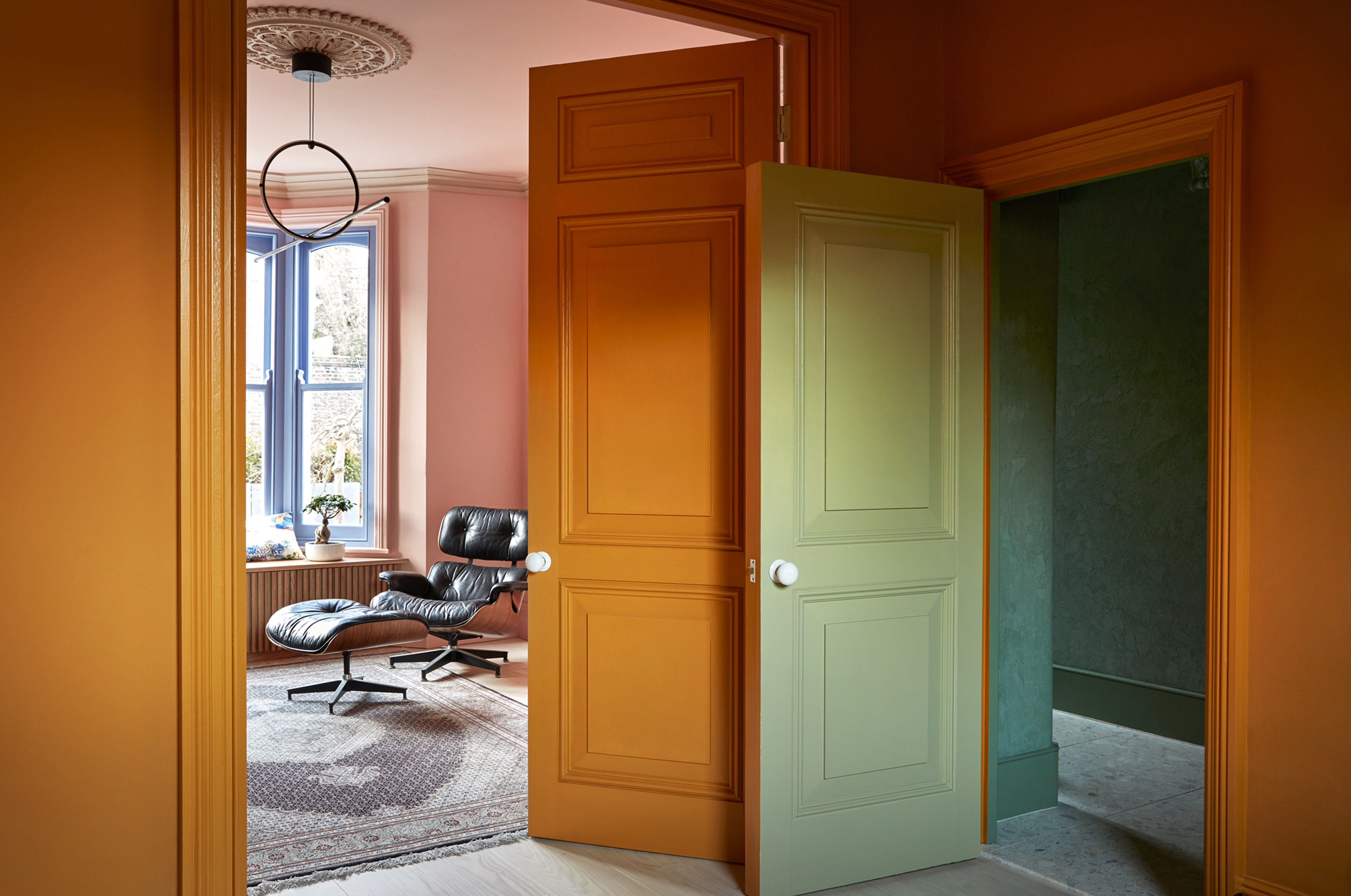
Trim, especially around doorways between rooms that run together, can be an effective way to structure a color transition, too. They can be painted in a completely different color, whether that's a neutral like white or a third color that complements both spaces. However, door trims also create plenty of extra corners for those all-important breaking points between colors, too.

Luke Arthur Wells is a freelance design writer, award-winning interiors blogger and stylist, known for neutral, textural spaces with a luxury twist. He's worked with some of the UK's top design brands, counting the likes of Tom Dixon Studio as regular collaborators and his work has been featured in print and online in publications ranging from Domino Magazine to The Sunday Times. He's a hands-on type of interiors expert too, contributing practical renovation advice and DIY tutorials to a number of magazines, as well as to his own readers and followers via his blog and social media. He might currently be renovating a small Victorian house in England, but he dreams of light, spacious, neutral homes on the West Coast.